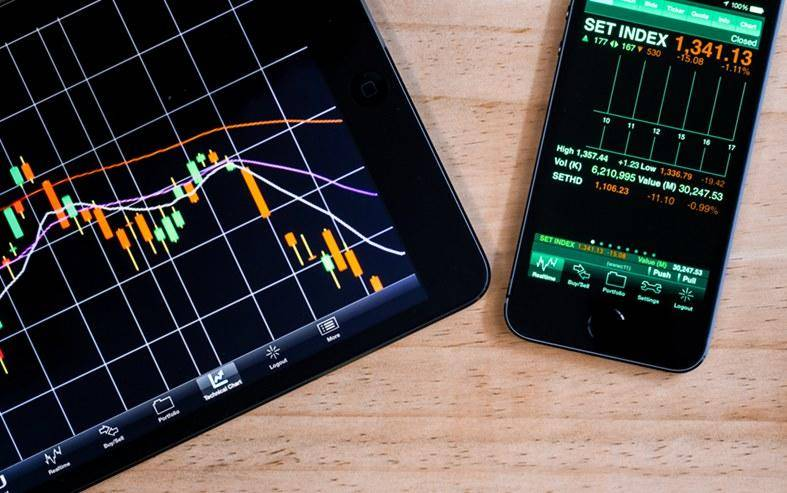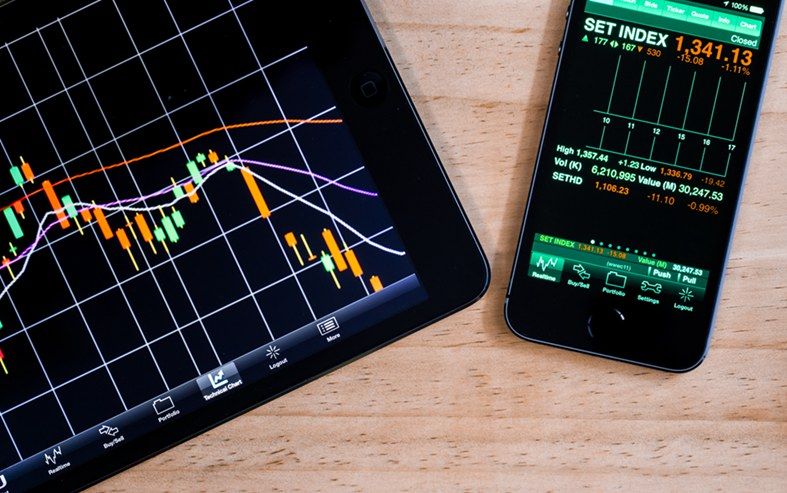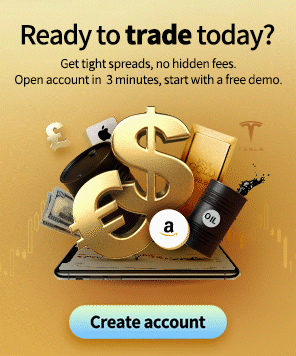What Is CFD Trading? Costs, Hours, Risks | Ultimate Guide For Beginners
If you are reading this, it may be your first time coming across the term CFDs or Contracts for difference. Hence, you might be thinking what is CFD trading? What is the difference between CFDs and Futures? Is CFD trading profitable?
In this post, we will comprehensively explain any questions you might have about CFDs. You might also want to learn about how to trade CFD as a beginner.
CFD trading Meaning
A CFD stands for contract for difference, which is a type of financial derivative that enables you to trade on Contract with margins and leverage. CFDs are very similar to forex margin trading, except that CFDs can trade a more diverse range of financial markets, such as trading on gold, commodity, forex, cryptocurrency, stock indices, etc.
What is CFD trading?
CFD trading means you trade a Contract For Difference, It means that the buyer and seller settle the transaction in cash after the change in price difference of the commodity through a contract of certain specifications. All you need is to deposit some margin, then you can bet on price fluctuations in either direction, with the amount of profit or loss you make depending on how accurate your prediction is.
When you trade on CFDs, you simply buy and sell units of the primary asset. Individuals usually buy or sell if they think the assets would either rise or fall.
Take a look at the real-time BTC/USD quotes on Mitrade.com.
Trade BTCUSD CFD with Mitrade
➜ If you buy BTC/USD at $8000 and set a "take profit" at $8200, if the bitcoin price rise in the financial market and reaches $8200, the contract will close and you will profit, or you will lose money.
➜ If you sell BTC/USD at $8000 and set a "take profit" at $7200, if the bitcoin price falls in the financial market and reaches $7200, the contract will close and you will profit, or you will lose money.
Essentially, CFDs are contracts between a trader and a broker. Both parties agree to exchange the difference in the value of each primary security from the beginning to the end of the contract.
In a trading process, you will often meet the following terms that also explain what is CFD trading.
■ Short and long trading
When trading CFD, you can speculate product price movements which then inform your decision to either buy or sell.

If you buy more CFDs of an asset because you believe the price would rise, this is termed 'going long' and when you sell it is called 'going short'.
The basis of long trade is to“Buy Low = Sell High”
However, a short trade is to “Sell High = Buy Low”
■ Leverage
CFD trading is leveraged. This means you can get access to large positions without committing totally to the cost of the outset.
If you wanted to open a regular trade you would be required to pay the complete cost upfront. With CFDs, you are allowed to pay a fraction of the cost, for example, 5% upfront.
Leverage allows you to spread your capital extensively to maximize profit.
Although you are allowed to pay a fraction upfront, profits and losses on CFDs are calculated using the full size of the position. For instance, If you paid 10% on a position, the profit or loss is calculated based on the total value which is 100%.
■ Margin
Margins are important for leverage trading. Margins are used to open and maintain positions. They usually represent part of the entire size of a position.
There are two types of margins in CFD trading namely Deposit and Maintenance margins. Deposit margins are used for opening positions while Maintenance margins are used to limit losses during trades.
■ Hedging
Contracts for difference can be used to hedge losses from an existing portfolio. For instance, if you believe some shares in your portfolio might suffer a short-term dip in value, you can offset some of the future losses by going short on the market with a CFD trade.
How does CFD trading work?
To properly understand how CFD trading works, you would need to understand what you are buying and selling, how you can make money, and the cost in this process.
First off, let's look at CFD trading in a specific market. Take EUR/USD as an example.
EUR/USD real-time quotes on Mitrade
Below is a contract for EUR/USD on Mitrade. ( Mitrade, as the fast-growing forex broker in Australia, provides a tight spread and low costs for Forex CFDs. )

- EUR/USD contract on mitrade -
There are 4 key concepts behind CFD trading.
★ Profit and loss
To understand the profit and loss in CFD trading, you will know how you can make money from it.
Profit or loss = (no. of contracts x value of each contract) x (closing price - opening price) |
For a total calculation of profit and loss from trades, you would need to deduct any fees or charges you may have paid. These could include overnight funding charges and commission.
For example, if you think the bitcoin price will rise in future times, then you buy 50 bitcoin contracts at the buy price of 7500. One bitcoin contract would then be equal to $10 per point. There are two types of results.
When the price grows to 7505, your profit will be
$2500= (50 x 10) x (7505.0 - 7500.0)
When the price decreases to 7497, your loss will be
$1500 = (50 x 10) x (7497.0 - 7500.0)
★ Deal Sizes
The size of a single contract is dependent on the underlying asset that is traded. This allows CFDs to copy how the asset is traded on the market. This is possible because CFDs are traded in standard contracts or lots.
★ Duration
CFD trades usually have no set expiry dates. To close a position, you would need to close a trade in the opposite direction to the one that opened it. For example, buying a position of 300 silver contracts would be closed when you sell 300 silver contracts.
Daily CFD positions that are left open past the daily cut-off time would be charged for overnight funding.
★ Spread and commission
The prices of CFD at quoted in two prices, the buy and sell price. The buying price is the price at which you open a long CFD while the sale price is the price at which you open a short CFD. The difference between the buy and sell price is called the spread.
The cost of opening a CFD position is usually covered in the spread. This means buying and selling prices would be adjusted to show the cost of making trades.
CFD Trading Online With Mitrade
What markets can you trade with CFD?
There are a variety of asset classes that can be traded with CFD investment. Actually, CFD is just a financial tool that involves margin and leverage trading. This enables a trader to enter the market without the need to deal directly with the market.
This provides better liquidity and flexible execution. This also gives the added benefit of short selling when the market is falling.
■ CFD indices
■ CFD forex
■ CFD cryptocurrencies
■ CFD commodities
■ CFD shares
CFD trading is one of the few available portals to the indices markets. Trading contracts for differences in indices copy the composition of a particular index. The most popular Indices instruments include: US500, AUS200, UK100
CFDs are also well suited to the Forex market because of the higher liquidity that happens in the market. You can trade popular forex pairs with CFD such as EUR/USD, AUD/USD, GBO/USD, etc.
Commodities can also be traded as CFD, including metals like gold and silver CFD, energy like gas, and oil.
CFD shares are also a popular market. CFD allows people to trade all kinds of shares with flexible leverage. On mitrade, you can trade more than 300 American shares, such as Tesla, TSMC, AAPL.
The cryptocurrencies market is highly speculative and highly volatile, creating many opportunities for traders. The popular cryptocurrency trades include BTC/USD, ETH/USD, XRP/USD, and more.
Traditional investments bring higher costs, while trading with CFDs allows you to trade various markets based on price changes without owning the assets themselves. Therefore, you can diversify your trading portfolio on one CFD broker without using various platforms.
Do you want a seamless trading experience? Try a free demo account or open a live account to get your trading journey!
CFD Trading Online With Mitrade
There are popular financial markets you can trade on Mitrade:
★ Popular Forex: EUR/USD, GBP/USD, USD/CAD, AUD/USD, USD/JPY, and others.
★ Popular Indices: EU50/ FR40/ NAS100/ AUS200/ US30/ UK100/ HK50 and others.
★ Popular Commodities: XAUUSD, XAGUSD, WTI, Brent, GAS, and others.
Palladium Platinum Natural Gas
★ Popular Shares: AAPL, GOOG, AMZN, TSLA, FB, NFLX, NIO, ASX.AU, and more.
Trade AAPL Trade GOOG Trade FB
Trade AMZN Trade WMT Trade ABT
Trade TSLA Trade NIO Trade ASX.AU
Trade NFLX Trade NVDA Trade Square
★ Popular cryptos: Bitcoin, Ethereum, Ripple, Doge, Cardona, SOL, etc.
Go to trading platform and check all markets>
*76% of retail CFD accounts lose money.
What is the difference between CFDs and shares?
CFDs involve less capital to start than stock purchases because they are traded on margin.
Trading CFDs allows you to spread your investing cash across a larger number of equities. You can trade on a variety of markets, including stocks, indices, commodities, currencies, and treasury bonds, regardless of whether the market is rising or falling.
Furthermore, unlike physical equities, CFDs do not require a settlement period, allowing traders to benefit immediately.

- A comparison of CFDs and stocks -
What is the difference between CFDs and Futures?
Although Futures and CFDs are both derivative products, there are significant differences between them.
If you buy a CFD contract you expect the market to rise, if you sell it that means you expect the market to fall. When trading CFD, you can close your position at any time.
Futures are contracts that you buy when you agree to buy a financial instrument at a fixed point in the future at a predetermined cost. There are a set date and price for the transaction, unlike CFDs.
Futures are traded on a centralized market where all prices are known since the government regulates the futures market. Trading takes place in an open, transparent, and anonymous environment.
CFDs aren't as tightly regulated as other financial instruments. The cost of CFD depends on which broker you use.
Read more: CFDs and Futures: Which Is Better?

- A comparison of CFDs and Futures -
Why is CFD trading so popular with investors?
Many investors may don’t know CFD, but most of them know margin trading or leverage trading. Many traditional brokers also allow you to trade with margin and leverage. It’s a good opportunity for traders who want a flexible and short-term investment. But you also can’t overlook the related high risks.
Here are some of the reasons why trading CFD is popular:
✔️ CFD trading is quite flexible as it enables you to trade on rising and falling markets.
✔️ The leverage obtainable when trading CFDs. You can use a small number of funds to control larger positions. This gives you better options for a spread.
✔️ CFDs can be used to offset any potential loss in value through hedging.
✔️ CFDs are also tax efficient.
✔️ CFDs provide you access to multiple financial markets.
What are the risks of CFDs trading?
There are various risks associated with CFD trading. 76% of retail CFD accounts lose money. The risks associated with trading CFDs usually involve counterparty risk, market risk, client money risk, and liquidity risk.
▲ Liquidity risk
If there are not enough trades happening on an underlying asset, it can cause your existing contracts to become illiquid. This would make your CFD provider request extra margin payments or close your contracts at unfavorable prices.
▲ Client money risk
When you agree on a contract with a CFD broker, they withdraw the initial margin and reserve the right to ask for additional margins from the pooled accounts. If other clients in your pool fail to meet margin calls, the CFD provider can collect from the pool account and this might affect returns.
▲ Market risk
CFD trading is basically using derivative assets to trade underlying assets. This causes it to be subject to market forces which can affect returns. Misinformation, government policies, or even changes in market conditions can affect returns.
▲ Counterparty risk
A counterparty is simply defined as the company that provides the asset in a financial transaction. Trading CFDs means trading contracts that have been issued by your CFD provider backed by an underlying asset.
What are the costs of CFD trading?
Generally speaking, all of the fees will be shown on the contract of the market. There are no hidden fees on a reliable CFD broker.
⭐ Spread
The spread is calculated as the difference between the price of buying and the price of selling. When you enter a buy trade using the quoted buy price and leave using the quoted sell price. The thinner the spread, the less the price needs to move in your favor before making a profit. If the price moves against you, you would realize a loss.
⭐ Overnight costs
Overnight funding will be debited or credited if the position is held passed a certain time. This cost depends on the direction of the position and the applicable holding rate.
⭐ Market data fees
To trade or view price data for CFDs, you would need to pay the required and necessary market data subscription. But not every platform charges market data fees.
⭐ Commission
This only applies to shares. You are required to pay a separate commission charge for trading share CFDs. If you trade forex, indices, gold, or bitcoin CFD, there is no commission fee.
What is CFD trading hours?
As CFD is just a financial tool that is available in many instruments trading, there is always something available to trade. Here are CFD trading times of popular CFDs;
Forex CFDs: trading 24/5
Index CFDs: trading 24/5
Commodity CFDs: trading 24/5
Cryptocurrency CFDs: trading 24/7
The busiest trading times are when the markets are traded. We take forex as an example.
Forex Trading centers in the world | Trading hours in local time |
Wellington, New Zealand | 08:00-17:00 |
Sydney, Australia | 08:00-17:00 |
Tokyo, Japan | 08:00-17:00 |
Hong Kong, China | 09:00-17:00 |
Shanghai, China | 09:00-17:00 |
Singapore, Singapore | 09:00-17:00 |
India | 09:00-17:00 |
Moscow, Russia | 09:30-19:00 |
Frankfurt, Germany | 07:00-15:00 |
Zurich, Switzerland | 09:00-17:30 |
Paris, France | 09:00-17:30 |
Johannesburg, South Africa | 09:00-17:00 |
London, United Kingdom | 08:00-16:00 |
New York, United States | 08:00-17:00 |
Toronto, Canada | 08:00-17:00 |
Chicago, United States | 08:00-16:00 |
*Please note that all times are 24-hour clocks.
Is CFD trading & Investment right for me?
If you are an investor looking to make good returns on your money, then CFD trading is a good choice. You should start with a demo account when trying out CFDs for the first time. Trading CFDs can be risky and It is therefore not suitable for all.
CFD trading is suitable for people who:
Want to diversify and mix up their portfolio. There are so many markets including shares, commodities, FX, cryptocurrencies, and indices.
Want the flexibility to be as active or passive as they want when trading.
Are looking for short-term opportunities as CFDs are usually held for days or weeks as opposed to longer periods.
They are looking for what to invest in but don’t have enough capital.
Trade with ease on Affordable CFD Broker

Mitrade is a global simplified online trading platform for CFD markets. They provide users an easy and convenient way to access almost 300 different markets including forex, commodities, indices, and cryptocurrencies. They charge no commissions and offer competitive spreads with up to 30X leverage for Australia.
They offer an intuitive trading platform with free and technical real-time charts and quotes, which is user-friendly for new traders and experienced traders.
Moreover, Mitrade is regulated by ASIC (An Australian regulatory license), which is one of the first-level finance licenses. Therefore, you don’t need to worry about safety and scams.
CFD Trading Online With Mitrade
What can you trade with Mitrade?
Forex CFDs: EUR/USD, GBP/USD, USD/CAD, AUD/USD, USD/JPY and others
CFDs on indices: EU50/ FR40/ NAS100/ AUS200/ US30/ UK100/ HK50 and others.
Commodities: Silver, Gold, Platinum, WTI, and others.
CFDs on cryptocurrencies: Bitcoin, Ethereum, Litecoin, Ripple, Doge, etc.
CFDs are a leveraged product and can result in the loss of your entire capital. Trading may not be suitable for everyone. Please consider the risks before using Mitrade services. You do not own or have any interest in the underlying assets.
Do you want a seamless trading experience?
Try a free demo account or open a real account to get your amazing trading journey!
* The content presented above, whether from a third party or not, is considered as general advice only. This article should not be construed as containing investment advice, investment recommendations, an offer of or solicitation for any transactions in financial instruments.
- Original
- Trading Analysis
Risk Warning: Trading may result in the loss of your entire capital. Trading OTC derivatives may not be suitable for everyone. Please consider our legal disclosure documents before using our services and ensure that you understand the risks involved. You do not own or have any interest in the underlying assets.



